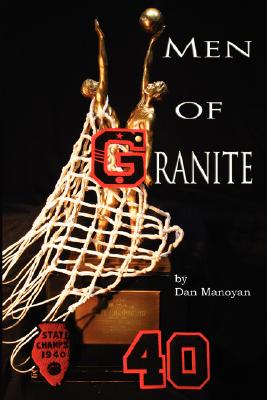Any resemblance of the hardscrabble Southern Illinois community of Granite City, with its teeming, carbon-belching steel mills, to Heaven, is purely coincidental. But it looked like the Pearlie Gates to the Hungarian, Armenian, Yugoslavian and Macedonian immigrants, who left behind genocide and oppression, intent on building a better life for their families. Perceptions die hard and the impression of the inhabitants of the Lincoln Place "ghetto", the wrong side of the Granite City tracks, was not a good one. Enter the Men of Granite. Athletics can be a powerful agent for change in society and the weapon of choice for a determined group of young men from Lincoln Place was basketball. They were weaned on the sport at the Lincoln Place Center, a settlement house built by their parents with materials provided by the steel mills. They mastered the game by playing it, day after day, hour after hour. They learned discipline at the hands of the master, bespectacled mighty-mite Sophia Prather, a former school teacher who considered her work at Lincoln Place Center a higher calling. Although the sons of Lincoln Place Center played the game at a high skill level, their ascension to the Granite City High School basketball team wasn't a given. The old school perception was that basketball was an American game and foreigners didn't have the "essentials" necessary to succeed. It took an athlete with the stature of Andy Phillip, born Andras Fulop of sturdy Hungarian stock, to debunk that notion. Phillip, who would go on to star for the University of Illinois' "Whiz Kids" and play 11 years in the NBA, was a Granite City starter from the time he was a sophomore. He opened the eyes of Granite City's basketball coach, and eventually opened doors to the untapped wealth of basketball talent from Lincoln Place. By Phillip's senior year, all five starters - the Hungarian, two Armenians, a Yugoslav and a Macedonian - were products of Lincoln Place. They were an unorthodox and superstitious lot - running plays in Armenian to confuse opponents among other things - but their steely resolve and dedication to teamwork made them champions. They became the first team in Illinois High School history to suffer a tournament loss and emerge as the state champions. To do that, the Warriors overcame deficits after three quarters in their quarter-final, semi-final and championship encounters. Their hard-knocks background prepared them well to be the quintessential comeback kids of high school s






